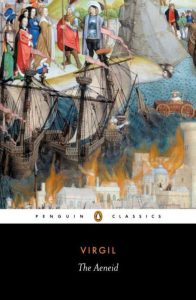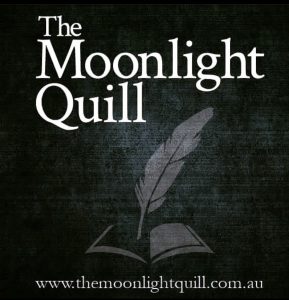
Homage to great works of the past or straight up plagiarism?
Some time around 29bc in Ancient Rome the poet Virgil approached Caeser Augustus and said “what’s up Augie! You know those really cool epic poems by Homer? I’m gonna write you a spin-off that will tell the story of how our awesome city was founded, and it’s gonna make you look real good. what do you reckon?” Augustus clearly liked the idea. “right on!” he exclaimed.
My wording for the above exchange may be a little questionable. But by many accounts this exchange did in fact take place. Written at a time when the powers that be were looking to “make Ancient Rome great again” The Aeneid would serve to glorify the foundation of what was to become a far reaching empire who’s remnants are still with us today.
The Aeneid tells the story of Aeneas who after surviving the fall of Troy at the hands the Greeks in the Iliad makes his escape together with his family. While Troy is being sacked and burnt to the ground Aeneas manages to make his escape while witnessing various omens that are a sign he is destined for greater things.
What follows is a journey where we ultimately arrive at that aha! moment, where the reader says to themselves, “So that’s how Rome was founded”. Well, not really. Keeping in mind that this story was written with the aim of instilling pride in the ancient Romans, Virgil certainly made sure to write a tale of epic proportions and added many details which were really there to stroke Augustus’ ego. Keeping within the great tradition of ancient literature, we are regaled with accounts of divine intervention, epic battle scenes and unrequited love. Aeneas’ love interest Dido is probably one of the most hard done by female characters in literature, but i’ll leave it at that to avoid spoilers.
Where this story loses a bit of its lustre for me is in its similarities to the great works of Homer. At times it felt as though it was a cut and paste job. Aeneas does a bit of island hopping and takes a trip to the underworld, as in The Odyssey and develops a fierce rivalry with antagonist Turnus which resembles the one between Achilles and Hector in the Iliad. Perhaps my mistake was re-visiting Homer’s works then jumping straight into this one. Either way, the parallels were too close for comfort.
Virgil died while still in the process of editing this work. While it can’t be said that the work is unfinished, according to scholars there are some lines which do not meet the requirements of dactylic hexameter, but these same scholars write that the work ends where it was intended to end. Sadly, we have no way of knowing if there were any changes which Virgil would have made had he not succumbed to illness. in fact, it is said that before passing he ordered his manuscript to be burned but Augustus did not allow this.
My recommendation to anyone willing to read The Aeneid would be to read it as a stand alone and try to appreciate it for more than just a work of propaganda. This is definitely a good read for any fans of the ancient world and it’s epic poems.
Thanks for reading.
SUPPORT THIS PROJECT ON PAY PAL
Check out the socials!
TikTok



No comments yet.